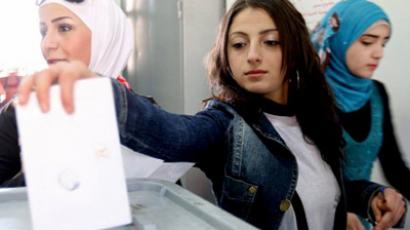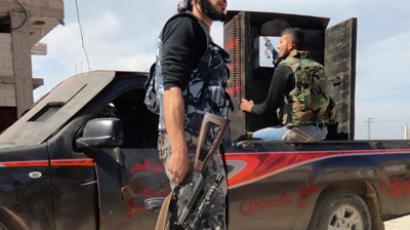Splintered Syria: Fears of sectarian violence
Syria has a long history of peaceful coexistence among diverse religious and ethnic communities. But with ongoing violence in the country, more and more people fear this pillar of secularist regimes might end up crumbling.
With a predominantly Sunni Muslim population, Syria is also home to many ethnic and religious minorities – Shia, Druze and Christians included.President Bashar al-Assad and his family are Alawite – the Shia Islam minority – and Alawites dominate the government, holding key military positions. For years his regime has protected the interests of the country’s diverse religious population by enforcing its strictly secular program and curbing the influence of radicalism. But for the past year the country has been embroiled in a political conflict which is now threatening to break this fragile balance.RT’s Maria Finoshina traveled to one of the last resorts of peace and stability in the country – the village of Maaloula. It is the only place in the world where Aramaic – the language believed to have been spoken by Christ – is still used as a living language.Away from the battles in this long-running conflict, it has troubled neighbors – the village of Yabroud, the alleged center of weapon smuggling in Syria is just 20 minutes away. The beleaguered city of Homs is less than a hundred kilometers away. The residents therefore are afraid the violence can now reach their place and ruin their peaceful life."We are afraid that these people [[anti-government protesters – RT]] will come here to try to disturb us and destroy our peaceful life, as they did in Homs and many cities, but we trust army and security and state,” one of the residents told the RT crew.For years the regime kept all the religious groups in unity with President al-Assad, more than just the head of state, but kind of a symbol of this harmony. “Our country before the crisis was developing now – we are all losing. Jesus said any kingdom that split will die fast. These people are receiving money, and listening to the orders. They want to ruin this country. What else [do] you think?” Pelagia Sayaf from St. Thekla Monastery explained to RT.As sectarian violence over Syria between Sunnis and Alawites has already been seen in neighboring Lebanon, Syrian minorities now scared it will bleed over across the border.And with increasing calls for foreign intervention and the arming of the opposition people fear a no-win fight would be tragic.














